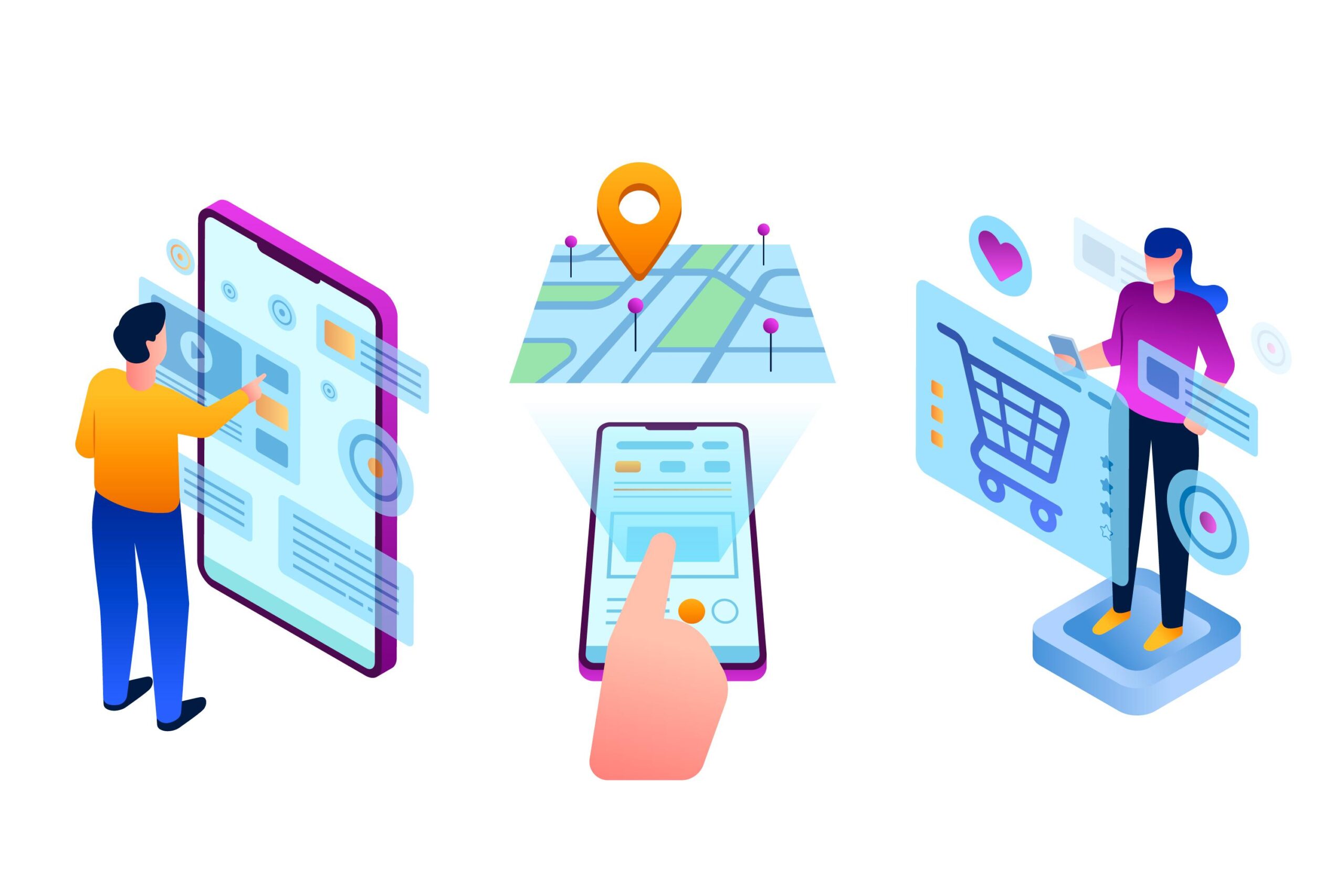In the era where smartphones are essential for completing daily tasks, we must ensure that the user experience also improves over time. Hence, hardware (mobile phone) and software (applications) integration comes into the picture. Mobile app development has become one of the crucial parts of modern-day IT practices. We have separate applications to manage our needs with no requirement but a smartphone. In this article, we will explore the recent and future trends in mobile app development, how it will change in the future, what the mobile app development market is like, and what Technuf has to offer to its customers in the future.
Current mobile app development market: A mobile application development platform is a system which facilitates the process of designing, developing, and maintaining software applications compatible with mobile devices. These applications are delivered to various application stores such as Google Play store or iOS App Store [Learn more about Android vs iOS app development in this article]. These apps can be pre-installed on mobile phones before purchase, or customers can download apps themselves from the app store.
As of 2021, the global mobile app development market size was valued at 197.2 billion USD. It is expected to reach around 583.03 billion USD by the year 2030. The global app development market is divided into three regions: North America, Europe, and Asia-Pacific. North America is currently leading the board in market shares. The Asia-Pacific region is expected to see a boom in the future, due to a change in technology usage pattern, rising income levels, and government initiatives to promote digital services as a primary mode of transactions. Categorically, there are gaming and non-gaming mobile applications across Android, iOS, and Windows platforms. Android and iOS are considered the two key players in the markets.
Future trends in mobile app development:
We can expect the following trends to dominate in the near future of mobile applications.
- Augmented reality and virtual reality (AR & VR): Top tech giants are already exploring AR and VR. One example of AR is 3D modeling for children’s education, which helps the children to develop spatial skills. In contrast, VR is a fictional world where there is no human interaction. Across platforms, developers have huge scopes to develop applications that can support AR and VR to its full potential in the coming days.
- Blockchain: This is also one of the top security trends of 2022. Blockchains help prevent data exploitation, by building a system where it is impossible to hack or steal stored information within a securely connected network.
- 5G: Recently, 5G connectivity has started to emerge as a proven technology for faster data speeds, network connectivity and many more.
- FinTech: Financial Technology connects its customers in an effective way so that the process is smooth, hassle free and instant. There is a variety of apps– such as payment processing, financial loans, and mobile financial services– which all run through FinTech.
- Artificial Intelligence (AI) and Machine Learning (ML): AI and ML helps businesses interact with their customers in real time. For instance, food delivery applications help customers order food within a short and convenient time frame. Hence, it is bringing the businesses in the fingertips of their target consumers.
- Application for Wearables: Smart bands (or Fitness bands) are forms of wearables. Developing more intuitive and user friendly mobile applications for these devices can be a terrific opportunity for the developers.
- Internet of Things (IoT): Businesses are shifting towards a business model where productivity, efficiency and cost reduction are the three main pillars. Mobile app developers can automate the communication between devices on the cloud through new applications, which will help the businesses to succeed in their new business model.
Mobile application development: Do’s and Don’ts:
Due to the increasing adaptability of technology and the resulting increase in mobile app demand, the mobile app development market has become tricky. It is essential for developers to build a strong foundation and avoid overcomplicating applications.
Things developers should implement:
- Intuitive User Interface (UI): One of the key aspects from a user perspective is that whether the UI of any specific app is easy to understand or not. A user will not be interested in using an app that lacks proper directions within the interface. This means that developers must keep in mind that everyone using that app will not necessarily be a technologically sound user yet.
- Proper scaling and layout of app: We often see that some apps perform well on computers but abysmally on mobile devices. This happens because the app is not optimized for mobile devices. As a result, it becomes unusable on mobile phones. The text becomes unreadable and chaotic. Due to this, developers must make sure they have a specific plan with any application that is primarily designed to run as a mobile application.
- Uniformity across devices: This is important to provide the users a seamless user experience across their devices and platforms. For example, mobiles and tablets have separate sizes and there are two platforms (Android and iOS) for mobile applications to run on. If the users find it difficult using any app across various devices and platforms, the app is not going to succeed.
Things developers must avoid:
- Ignoring user feedback: This is a big mistake, as applications are designed to be used. If user feedback or dissatisfactions are not taken into consideration, there will be no way to improve and serve the customers better.
- Overcrowding app with content: We often see some apps are full of large chunks of information upfront. This ruins the user’s comfort in navigating the app. Ad placement is also crucial. If ads are the first impression upon opening the app, and if ads appear too frequently, the user will be displeased. This specifically applies to the trial versions where users must pay a subscription fee to access the full benefits of the app or beta version of applications where it is not fully ready yet.
- Not promoting: This point may be a surprise to many, but it is true that in the tech world marketing or promoting is still considered irrelevant, because people think the quality of their work speaks for itself. In actuality, the market has become too competitive for this strategy to succeed. When every other company or startup is trying to produce solutions to different problems using an app, it is crucial to market the product well and convince the users why we should be chosen over our competitors. This must be a comprehensive approach that should start initially with the technical people behind it.
What can Technuf offer?
Application development is one of Technuf’s strongest capabilities. They have applications built for students, time management, and health. Student Connect, School bus connect, Aphelia Timesheet and Health Connect are the core products Technuf has to offer. In the future, the company is keen to use their expertise to build more applications for mobile and computer platforms.



